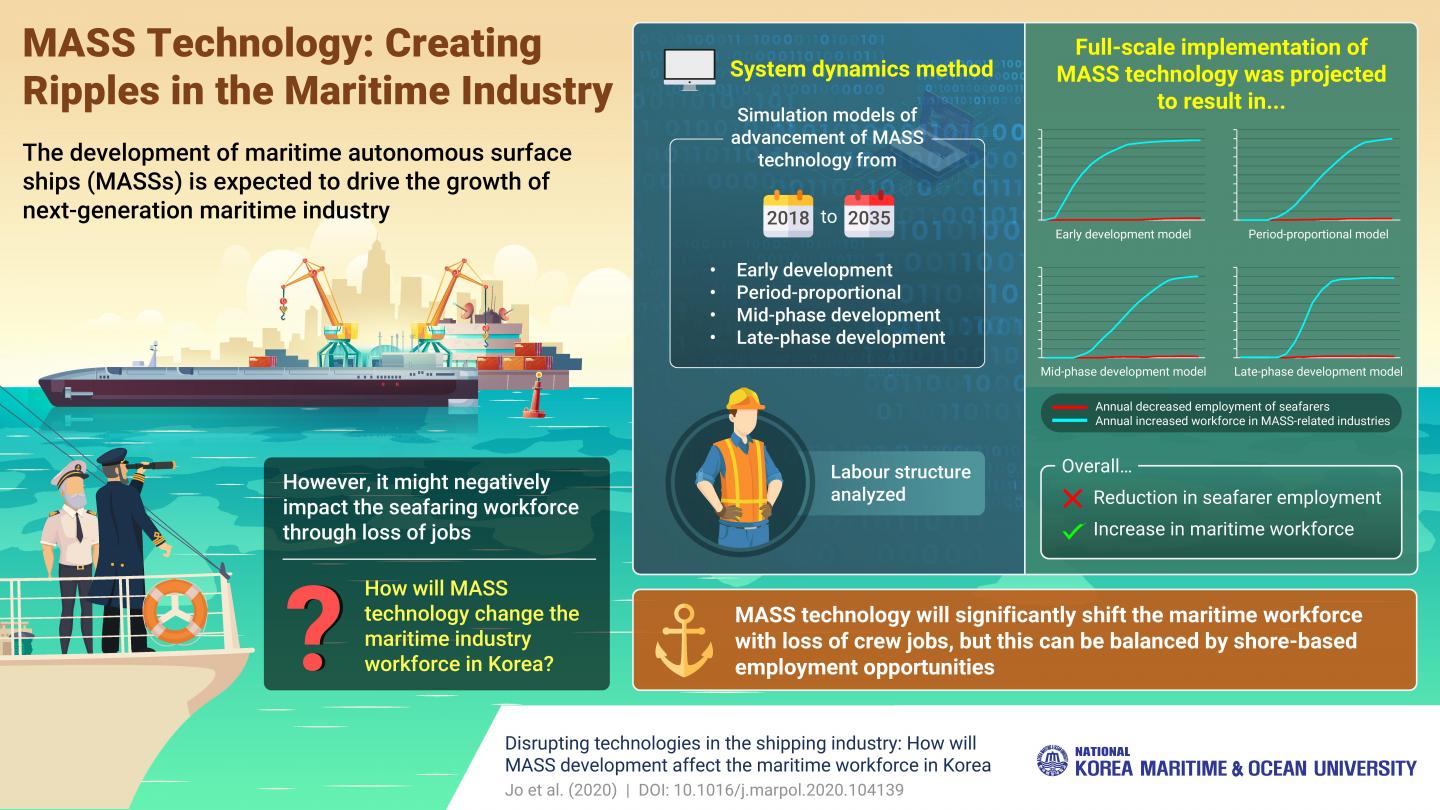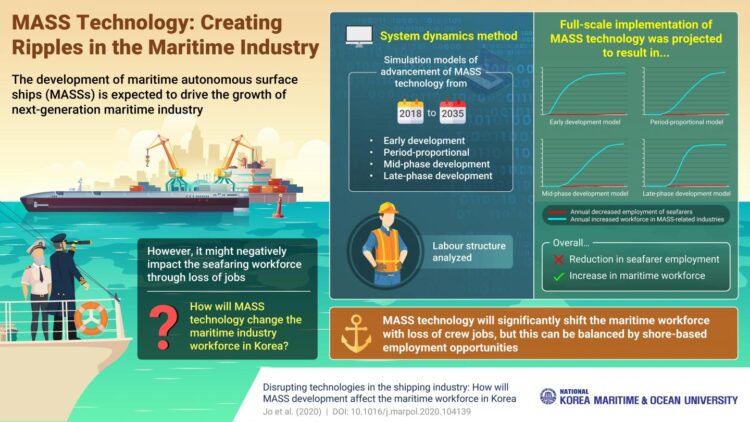Scientists simulate trends in maritime employment over the next 15 years following ship automation

Credit: Korea Maritime and Ocean University
Artificial intelligence and automation are changing the world, one industry at a time! Whatever humans can do, machines are learning to also do effectively, with lower costs and fewer errors. The maritime shipping industry is no different. Ships are now increasingly automated (called maritime autonomous surface ships or MASSs), reducing the need for human input. While this bodes well for labor and fuel costs, the question naturally raised is, what happens to the jobs of seafarers, the chief workforce of the shipping industry, once MASSs take over.
To find out, researchers from Korea used complex mathematical models and simulations to determine the effect of MASS technology on jobs lost and gained over time. In their study published in Marine Policy, Assistant Professor Sohyun Jo from Korea Maritime and Ocean University–the lead scientist on this study and a former navigation officer–simulated four possible scenarios depicting varying speeds of growth of MASS technology. The projected outcomes in all the scenarios were consistent; in all examined scenarios, the number of seafarer jobs decreased, but at least fifty times as many shore-based jobs as the lost seafarer jobs were newly created.
These findings are encouraging, but not the endpoint, believes Dr. Jo “This indicates an overall increase in the number of jobs, but we need to nevertheless be prepared; specific and dynamic education, training and development of human resource policies for skills development should be introduced,” she says. Other countries that provide manpower for the maritime industry can benefit from this study by introducing “political willingness and technical ability” to adapt to the changing employment sphere. Technology development and timely training internationally competitive human resources is also essential.
“Moreover, to ensure that the marine industry grows sustainably in a new business ecosystem, preemptive efforts to create new business opportunities incorporating ICT technologies are needed,” Dr. Jo suggests.
Technology is changing the marine industry for the better, but people can also grow with it, by find their place in this new automated world.
###
Reference
Authors: Sohyun Jo
Title of original paper: Disrupting technologies in the shipping industry: How will MASS development affect the maritime workforce in Korea
Journal: Marine Policy
DOI: 10.1016/j.marpol.2020.104139
Affiliations: Division of Maritime Transportation Science, Korea Maritime and Ocean University, Busan, Republic of Korea
About National Korea Maritime & Ocean University
South Korea’s most prestigious university for maritime studies, transportation science and engineering, the National Korea Maritime & Ocean University is located on an island in Busan. The university was established in 1945 and since then has merged with other universities to currently being the only post-secondary institution that specializes in maritime sciences and engineering. It has four colleges that offer both undergraduate and graduate courses.
Website: http://www.
About the author
Dr. Sohyun Jo is an Assistant Professor at Korea Maritime and Ocean University, where she teaches subjects like maritime transport, shipping management, cargo handling, ship simulation, shipping and other safety management. Dr. Jo graduated from Korea Maritime and Ocean University in Korea, majoring in Navigation. She received her MSc in the maritime safety environment and administration at World Maritime University in 2010. She received her doctorate from Korea Maritime and Ocean University in Korea.
She worked in the shipping company as a navigation officer from 3rd to chief mate for 7 years after she graduated KMOU. She is a Master Mariner who holds a 1st license of navigation for deck department.
Media Contact
Sun Young Yoo
[email protected]
Original Source
https:/
Related Journal Article
http://dx.





